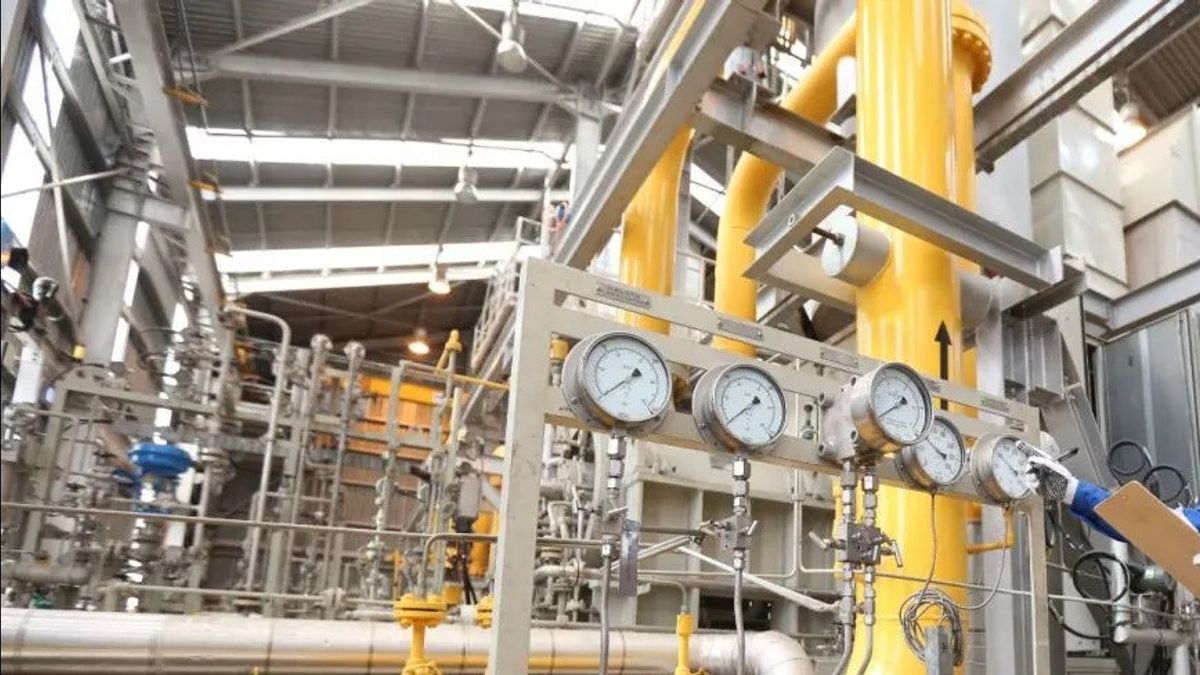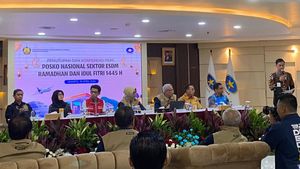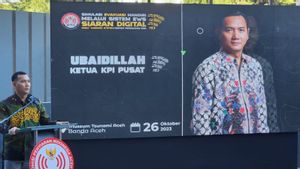JAKARTA - PT Perusahaan Gas Negara Tbk (PGN) carries out the initiative to optimize liquefied natural gas products (LNG).
In addition to meeting industrial needs in the midst of continued decline in natural gas production, penetration of future energy products is also part of a strategy to remain resilient in facing the global geopolitical risks that are currently happening.
"There is one initiative that PGN is currently pushing to penetrate the market with LNG. Of course this needs to be an industrial consideration if there is industrial need that is not met through pipeline gas," said PGN's Director of Strategy & Business Development, Rosa Permata Sari in a statement to the media, Friday, April 26.
According to him, this is a form of anticipation for natural decline challenges or decreasing natural natural production of natural natural gas that occur, and as part of PGN's commitment as an energy provider to continue to help meet the energy needs of customers, especially in this case the industrial sector. So it is hoped that it can continue to grow in the midst of the current dynamics.
This is in line with information from the Ministry of Energy and Mineral Resources in March 2024 which announced that Indonesia's natural gas reserves are more than oil reserves, but Indonesia's gas production is expected to decline in the next few years due to the natural decline in existing gas wells.
From the hearing activities carried out by PGN, Rosa assessed that many actors in the industrial sector have understood this situation and realized that LNG, apart from having advantages in terms of security, also still offers more competitive costs than other fossil fuels, so that it is the right solution to keep the industry growing in situations where natural decline occurs and faces the challenges of geopolitical dynamics.
In many countries, he continued, LNG has been used as an energy alternative that plays an important role in the industrial sector and has a positive impact on the country. Through proper management and optimization, LNG is also a sustainable and environmentally friendly energy source to support the Net Zero Emission Target in 2060.
Seeing the significant role of LNG, Rosa explained, it is also important for Indonesia to have LNG trading facilities, both exports and imports. Anticipation of imports is still needed if the availability of domestic LNG is not sufficient.
So PGN is also preparing to form certain entities that will run cross-border LNG trading.
"We also need to build a Hub infrastructure, which is planned at several points, one of which is in Lamong, East Java. Then also in Aceh, in Arun, and the last one is in Bontang," said Rosa.
SEE ALSO:
He reminded that it is important to plan and implement energy policies that are relevant to the situation so as to maintain the strength of the country's economy.
"With the geopolitical conditions that occurred today, there were several energy policies, we need to do a good plan involving not only PGN but also regulators," continued Rosa.
PGN itself has prepared a long-term plan for the next 5 to 10 years related to the long-term infrastructure plan that will be built as a strengthening commitment to meet energy needs for customers.
"So we hope that the logistics price or cost of infrastructure to provide more competitive energy will be achieved," concluded Rosa.
The English, Chinese, Japanese, Arabic, and French versions are automatically generated by the AI. So there may still be inaccuracies in translating, please always see Indonesian as our main language. (system supported by DigitalSiber.id)















